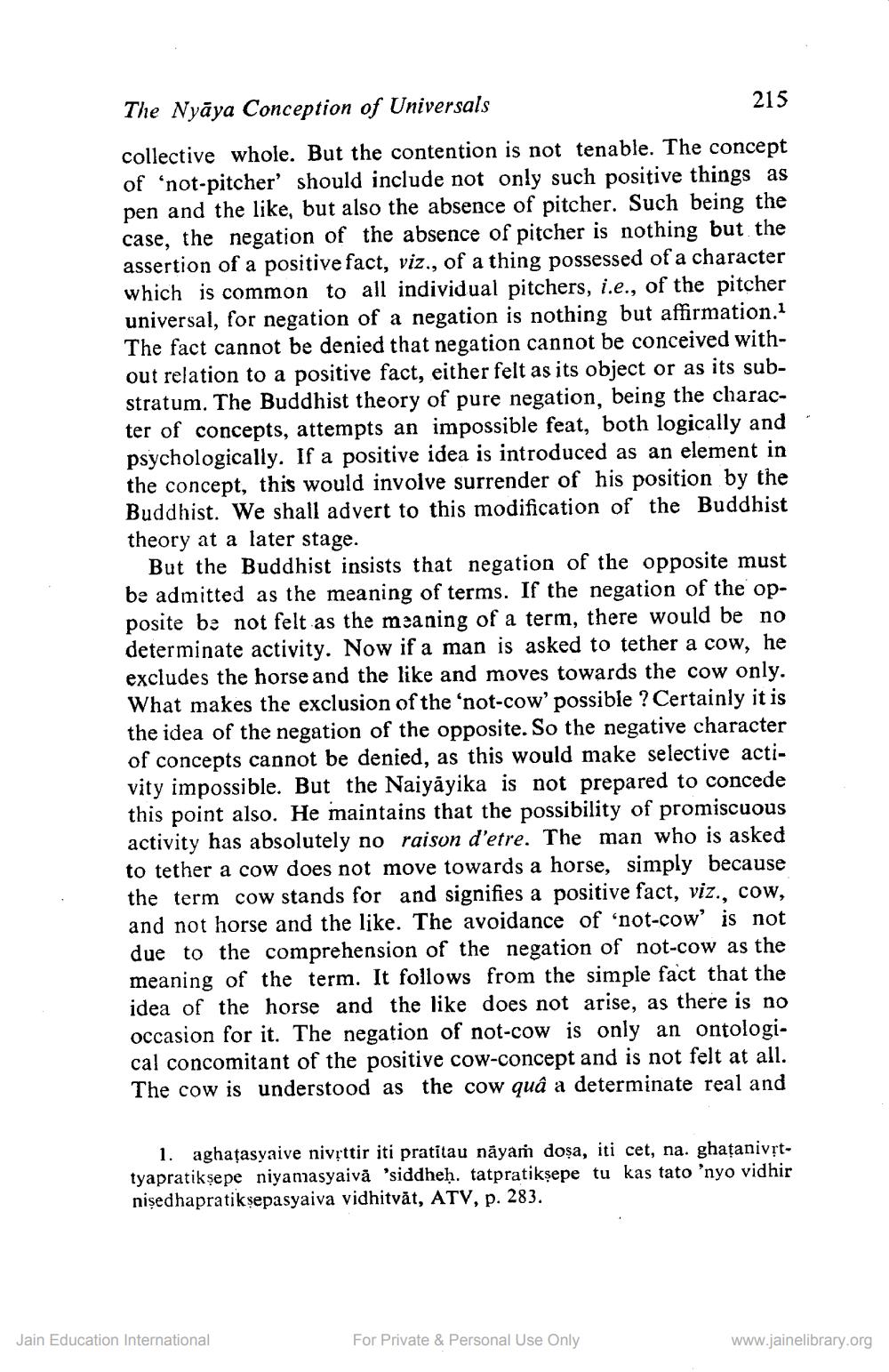________________
The Nyāya Conception of Universals
215
collective whole. But the contention is not tenable. The concept of ‘not-pitcher' should include not only such positive things as pen and the like, but also the absence of pitcher. Such being the case, the negation of the absence of pitcher is nothing but the assertion of a positive fact, viz., of a thing possessed of a character which is common to all individual pitchers, i.e., of the pitcher universal, for negation of a negation is nothing but affirmation.1 The fact cannot be denied that negation cannot be conceived without relation to a positive fact, either felt as its object or as its substratum. The Buddhist theory of pure negation, being the character of concepts, attempts an impossible feat, both logically and psychologically. If a positive idea is introduced as an element in the concept, this would involve surrender of his position by the Buddhist. We shall advert to this modification of the Buddhist theory at a later stage.
But the Buddhist insists that negation of the opposite must be admitted as the meaning of terms. If the negation of the opposite be not felt as the meaning of a term, there would be no determinate activity. Now if a man is asked to tether a cow, he excludes the horse and the like and moves towards the cow only. What makes the exclusion of the 'not-cow' possible ? Certainly it is the idea of the negation of the opposite. So the negative character of concepts cannot be denied, as this would make selective activity impossible. But the Naiyāyika is not prepared to concede this point also. He maintains that the possibility of promiscuous activity has absolutely no raison d'etre. The man who is asked to tether a cow does not move towards a horse, simply because the term cow stands for and signifies a positive fact, viz., cow, and not horse and the like. The avoidance of 'not-cow' is not due to the comprehension of the negation of not-cow as the meaning of the term. It follows from the simple fact that the idea of the horse and the like does not arise, as there is no occasion for it. The negation of not-cow is only an ontological concomitant of the positive cow-concept and is not felt at all. The cow is understood as the cow quâ a determinate real and
1. aghatasyaive nivịttir iti pratitau nayam dosa, iti cet, na. ghatanivịt. tyapratiksepe niyamasyaivă 'siddheḥ, tatpratikșepe tu kas tato ’nyo vidhir nişedhapratiksepasyaiva vidhitvåt, ATV, p. 283.
Jain Education International
For Private & Personal Use Only
www.jainelibrary.org




